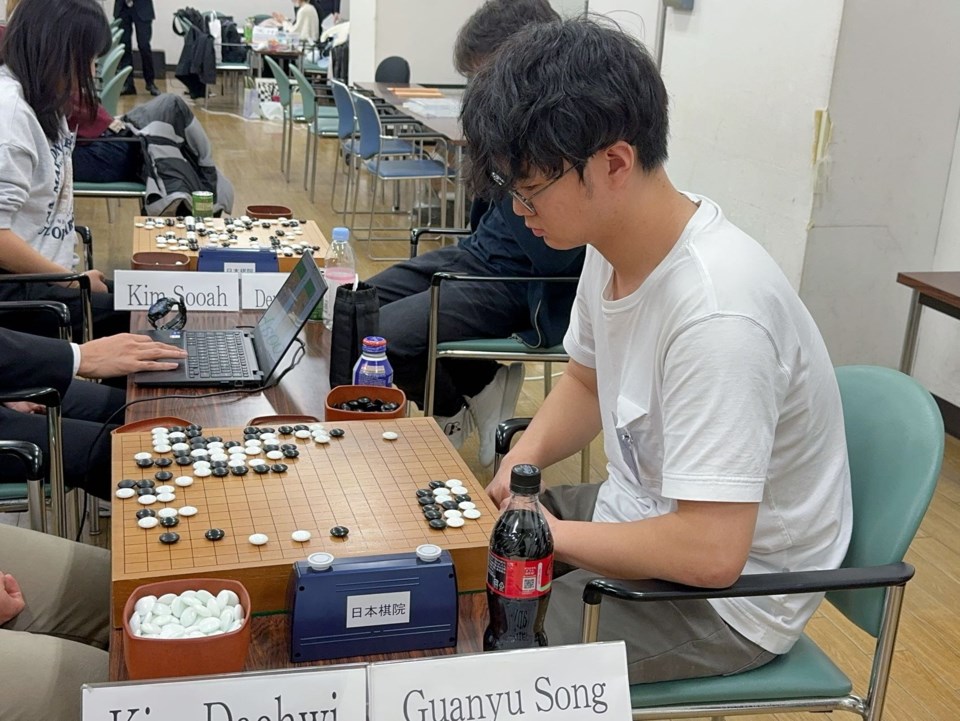YORKTON - Guanyu Song of Toronto is rather unique among North American Go players.
Song was recently the lone player to represent North America at the 22nd World Students Go Oza Championship in Tokyo, Japan in February.
The World Students Go Oza Championship was founded in 2003 and continues to be organized by students as a way for top undergraduate university players around the world to meet and compete with each other and determine the world’s top student player, notes The International Go Federation at www.intergofed.org
“It was very nice to meet the top players from all over the world,” Song told Yorkton This Week.
But in terms of results there was some disappointment.
“I didn’t play as well as I expected,” said Song. “I was more confident before I played.”
But, in the end Song -- who is currently studying computer science at the University of Toronto and planning to pursue further education in the field of artificial intelligence -- was middle of the pack finishing eighth among 16.
Song said he didn’t feel he played his best, adding jet lag hit him.
“Also the players were stronger than I expected,” he added.
There is also the fact that in North America Go does not have the profile it does in other counties, in particular China, Korea and Japan.
“It is not happening in North America,” said Song, who said players need constant, high level competition to become better. “I haven’t played a tournament in months, and training and competition are very different.”
Song actually learned the game before emigrating to Canada.
“I learned Go in China when I was very small. I grew up in China,” he said, adding he even took lessons.
It worked in the sense Go is now a passion for Song, evolving to be of greater interest than other games and hobbies tried.
The process may have been aided because ending up in Toronto allowed his interest in Go to continue.
“Toronto is more diverse with immigrants from other countries,” explained Song, so “compared to other cities there are more Go players.”
Certainly the interest in, and profile of Go is much higher, in several countries attaining a level equating to Go being a sport.
Song said it isn’t hard to see why there is interest in Go being recognized more widely as a sport.
“I think in principle it should be a sport . . . For both Go and Chess they share a lot of aspects with physical sport,” he said, starting with the commitment of players to become better and the element of sportsmanship.
And, while Go is a mind game, there is a ‘physical’ aspect in that too, offered Song.
“It’s very tiring to play a game – maybe up to five-hours of intense thinking,” he said.
Song had won the North American qualifier for the international event in late December.
Again from www.intergofed.org “the qualifier consisted of the eight highest-rated players among those registered and was a 3-round single-elimination tournament . . . The first round saw no upsets with the top four seeds, all 7d players, taking down their opposition. The second and third rounds were held the next day, both with an online proctor to ensure the integrity of the games. Guanyu Song 7d and Lambert Lee 7d took down Shang Zhou 7d and Brady Zhang 7d (seventh dan), respectively, setting the stage for the final round. Lambert had won the qualifier last year, and winning the final game would qualify him to be the North American representative for a second year in a row. ‘However,’ reports Justin Teng, ‘Guanyu held strong and defeated Lambert by killing a large dragon, and overall Guanyu exhibited stable play throughout the tournament.’”

